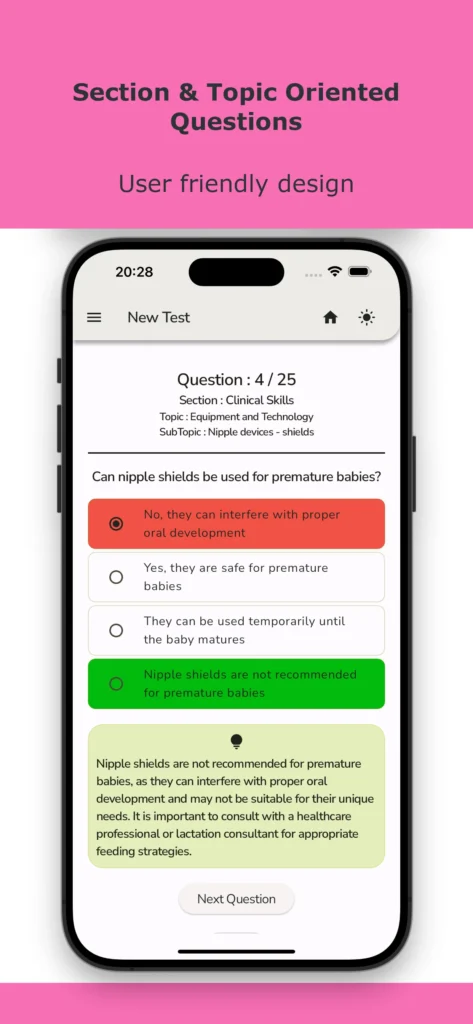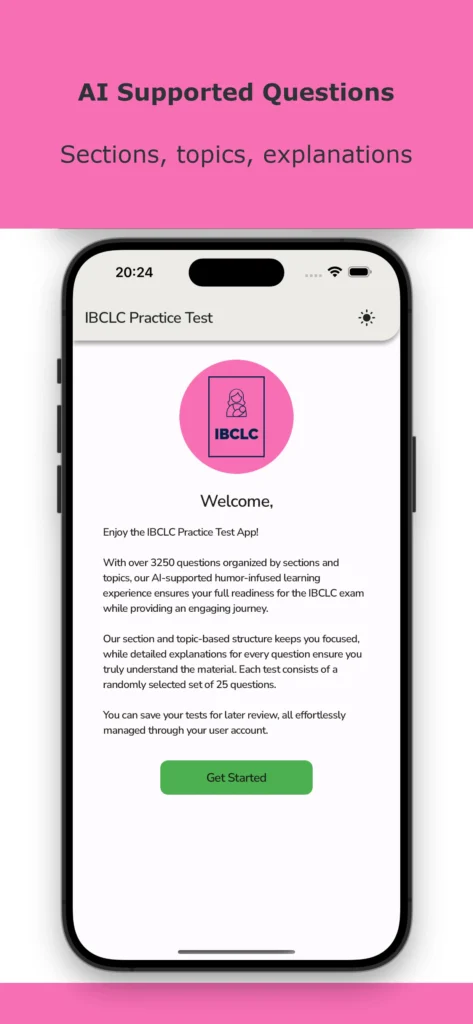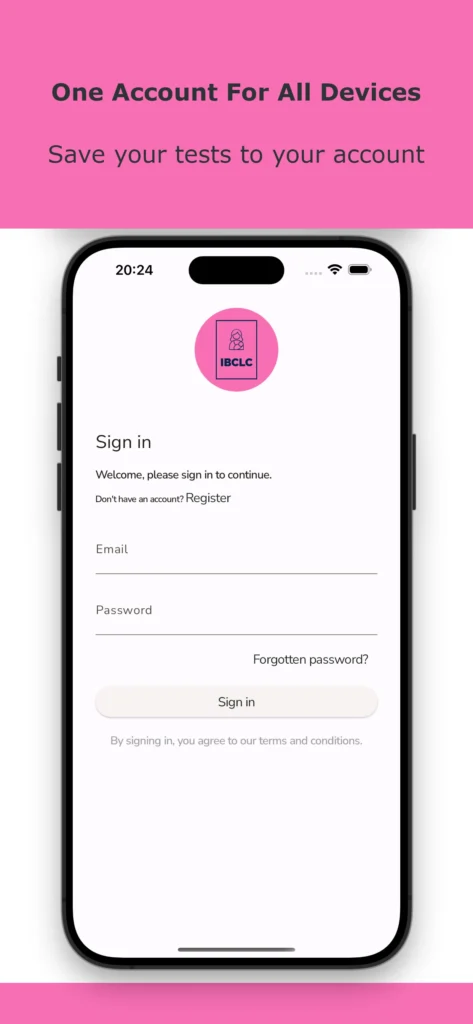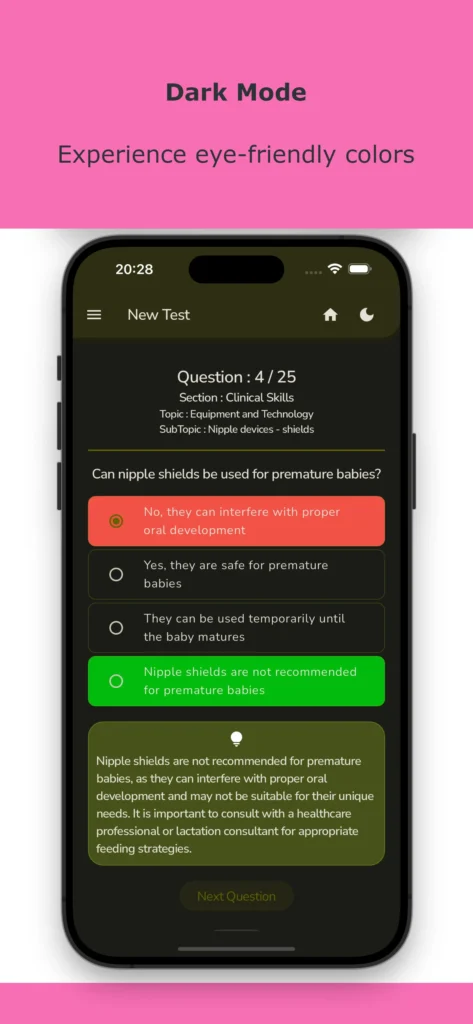Introduction
What is an IBCLC?
If you’re passionate about helping mothers and babies with breastfeeding, becoming an International Board Certified Lactation Consultant (IBCLC) might be the right path for you. An IBCLC is a healthcare professional who specializes in lactation and provides expert advice and support to breastfeeding families. They play a crucial role in promoting and supporting breastfeeding, helping mothers overcome challenges, and ensuring the well-being of both the mother and the baby.
Why Become an IBCLC?
Becoming an IBCLC offers numerous benefits and opportunities. Firstly, it allows you to make a positive impact on the lives of mothers and babies by providing evidence-based lactation support. You’ll have the knowledge and skills to address breastfeeding challenges, such as latching difficulties, low milk supply, or infant feeding issues. Secondly, as an IBCLC, you’ll be recognized as a trusted expert in the field of lactation, which can open doors to various career opportunities. You can work in hospitals, clinics, private practice, or even start your own lactation consulting business. Lastly, being an IBCLC allows you to join a global community of professionals dedicated to improving breastfeeding outcomes and advocating for breastfeeding-friendly policies.
How to Become an IBCLC
Becoming an IBCLC requires a combination of education, clinical experience, and passing the IBCLC exam. Here are the steps to follow:
- Educational Requirements: To be eligible for the IBCLC exam, you must complete specific educational requirements. These requirements include 90 hours of lactation-specific education, 14 health science courses, and 5 hours of communication skills training.
- Clinical Experience: In addition to the educational requirements, you must gain clinical experience in lactation. This can be achieved through supervised clinical practice, working with breastfeeding families, and documenting your hours of experience.
- IBCLC Exam: Once you have completed the educational requirements and gained the necessary clinical experience, you can apply for the IBCLC exam. The exam consists of multiple-choice questions that assess your knowledge and skills in lactation consulting.
- Recertification: After passing the IBCLC exam, you will need to recertify every 5 years to maintain your IBCLC certification. This involves earning Continuing Education Recognition Points (CERPs) and meeting other recertification requirements.
How Long Does It Take to Become an IBCLC?
The time it takes to become an IBCLC can vary depending on individual circumstances. On average, it can take around 2-3 years to complete the educational requirements, gain clinical experience, and pass the IBCLC exam. However, the duration may be shorter or longer depending on factors such as your prior education, availability of clinical opportunities, and personal commitments.
How Much Does an IBCLC Make?
The salary of an IBCLC can vary depending on factors such as location, experience, and work setting. According to the International Lactation Consultant Association (ILCA), the average annual salary for IBCLCs in the United States ranges from $60,000 to $80,000. However, it’s important to note that salaries can vary significantly, and some IBCLCs may earn more or less than the average.
Pathways to Becoming an IBCLC
What is an IBCLC?
An International Board Certified Lactation Consultant (IBCLC) is a healthcare professional who specializes in providing expert lactation support and guidance to breastfeeding families. IBCLCs play a crucial role in promoting and supporting breastfeeding, ensuring that parents and infants receive the best possible care and assistance.
Why Become an IBCLC?
Becoming an IBCLC can be a rewarding career choice for individuals passionate about maternal and infant health. It offers the opportunity to make a positive impact on the lives of breastfeeding families, helping them overcome challenges and achieve their breastfeeding goals.
Pathways to Becoming an IBCLC
There are several pathways to becoming an IBCLC, allowing individuals from different professional backgrounds to pursue this certification. The three main pathways are:
- Pathway 1: Health Sciences Background
- Pathway 2: College Degree Background
- Pathway 3: Continuing Education Background
Pathway 1: Health Sciences Background
If you have a background in health sciences, such as being a registered nurse (RN), midwife, or physician, this pathway may be suitable for you. The requirements for Pathway 1 include:
- Completion of at least 14 health sciences courses
- Completion of at least 90 hours of lactation-specific education
- Completion of at least 1,000 hours of supervised clinical practice in lactation
- Passing the IBCLC examination
Pathway 2: College Degree Background
If you have a college degree in a field unrelated to health sciences, you can still pursue a career as an IBCLC. The requirements for Pathway 2 include:
- Completion of at least 14 health sciences courses
- Completion of at least 90 hours of lactation-specific education
- Completion of at least 1,000 hours of supervised clinical practice in lactation
- Passing the IBCLC examination
Pathway 3: Continuing Education Background
If you have a background in a non-healthcare field and have completed continuing education in lactation, this pathway may be suitable for you. The requirements for Pathway 3 include:
- Completion of at least 90 hours of lactation-specific education
- Completion of at least 1,000 hours of supervised clinical practice in lactation
- Passing the IBCLC examination
Preparing for the IBCLC Examination
The IBCLC examination is a comprehensive test that assesses the knowledge and skills required to practice as an IBCLC. To prepare for the examination, it is recommended to:
- Attend lactation-specific education courses
- Participate in clinical practice under the supervision of an IBCLC
- Study and review relevant textbooks and resources
- Join study groups or online forums to connect with other aspiring IBCLCs
Recertification and Continuing Education
Once you become an IBCLC, it is important to maintain your certification through recertification every five years. Recertification requires earning Continuing Education Recognition Points (CERPs) through various educational activities, such as attending conferences, completing online courses, or participating in research projects.
Conclusion
Becoming an IBCLC is a rewarding journey that requires dedication, education, and clinical experience. Whether you come from a health sciences background or have pursued continuing education, the pathways to becoming an IBCLC offer opportunities for individuals with a passion for supporting breastfeeding families. By obtaining the IBCLC certification, you can make a significant impact on the health and well-being of mothers and infants.
Preparing for IBCLC Certification
What is an IBCLC?
An International Board Certified Lactation Consultant (IBCLC) is a healthcare professional who specializes in providing expert lactation support and guidance to breastfeeding families. IBCLCs are highly trained and knowledgeable in the field of lactation and play a crucial role in promoting and supporting breastfeeding.
Why Become an IBCLC?
Becoming an IBCLC can be a rewarding career choice for individuals who are passionate about helping breastfeeding families. As an IBCLC, you will have the opportunity to make a positive impact on the health and well-being of both infants and their mothers. Additionally, IBCLCs are in high demand and can enjoy a fulfilling career with competitive salaries.
Pathways to IBCLC Certification
There are several pathways to becoming an IBCLC, allowing individuals from different professional backgrounds to pursue this certification. The three main pathways are:
- Pathway 1: Health Sciences Background
- Pathway 2: Breastfeeding Support Background
- Pathway 3: Academic Education in Human Lactation
Each pathway has specific requirements that must be met, including completing lactation-specific education, clinical practice hours, and passing the IBCLC exam.
How to Become an IBCLC
If you are interested in becoming an IBCLC, follow these steps:
- Evaluate Your Eligibility: Review the eligibility requirements for the pathway that aligns with your background and determine if you meet the criteria.
- Complete Lactation-Specific Education: Enroll in a lactation education program that meets the requirements set by the International Lactation Consultant Association (ILCA). These programs provide comprehensive education on lactation and breastfeeding management.
- Gain Clinical Experience: Acquire the necessary clinical practice hours by working with breastfeeding families under the supervision of a qualified IBCLC or healthcare professional.
- Prepare for the IBCLC Exam: Study and prepare for the IBCLC exam, which assesses your knowledge and skills in lactation and breastfeeding support. Utilize study guides, practice exams, and resources provided by reputable organizations.
- Apply for the IBCLC Exam: Submit your application for the IBCLC exam to the International Board of Lactation Consultant Examiners (IBLCE) and pay the required fees.
- Take the IBCLC Exam: Schedule and take the IBCLC exam at an approved testing center. The exam consists of multiple-choice questions and assesses your competence in various areas of lactation and breastfeeding.
- Maintain Certification: Once you pass the exam, you will be awarded the IBCLC certification. To maintain your certification, you will need to recertify every five years by earning Continuing Education Recognition Points (CERPs) and meeting other recertification requirements.
How Long Does It Take to Become an IBCLC?
The time it takes to become an IBCLC can vary depending on your pathway and individual circumstances. On average, it can take anywhere from several months to a few years to complete the necessary education, gain clinical experience, and pass the exam. It is important to plan and allocate sufficient time to meet the requirements and adequately prepare for the exam.
How Much Does It Cost to Become an IBCLC?
The cost of becoming an IBCLC can include expenses such as education programs, clinical practice hours, exam fees, and recertification fees. The exact cost will depend on factors such as the pathway you choose, the education program you enroll in, and any additional resources or materials you may need. It is advisable to research and budget for these expenses in advance.
Conclusion
Becoming an IBCLC is a rewarding journey that requires dedication, education, and clinical experience. By following the appropriate pathway, completing the necessary requirements, and passing the IBCLC exam, you can join the ranks of highly skilled professionals who make a significant impact on breastfeeding families’ lives.
Taking the IBCLC Exam
Preparing for the IBCLC Exam
If you’re considering becoming an IBCLC, it’s important to understand the process of taking the IBCLC exam. This comprehensive guide will walk you through the steps and provide valuable tips to help you succeed.
Before you can take the IBCLC exam, you must meet the eligibility requirements set by the International Board of Lactation Consultant Examiners (IBLCE). These requirements include completing specific lactation education, clinical practice hours, and health science education. Once you meet these requirements, you can apply to take the exam.
When preparing for the IBCLC exam, it’s essential to create a study plan that covers all the necessary topics. The exam covers a wide range of knowledge areas, including anatomy and physiology, infant feeding and nutrition, breastfeeding management, and professional practice. Allocate sufficient time to study each topic thoroughly.
Studying for the IBCLC Exam
Studying for the IBCLC exam requires dedication and a structured approach. Here are some tips to help you make the most of your study time:
- Create a study schedule: Set aside dedicated time each day or week to focus on studying. Consistency is key to retaining information.
- Use reliable study resources: Invest in reputable study materials, such as textbooks, online courses, and practice exams. These resources will help you gain a comprehensive understanding of the exam content.
- Join study groups: Connecting with other aspiring IBCLCs can provide valuable support and the opportunity to discuss challenging topics. Consider joining online study groups or forming a local study group with fellow candidates.
- Take practice exams: Practice exams are an excellent way to assess your knowledge and identify areas that require further study. Familiarize yourself with the exam format and practice time management.
Exam Day Tips
On the day of the IBCLC exam, it’s important to be well-prepared and manage your time effectively. Here are some tips to help you succeed:
- Get a good night’s sleep: Ensure you’re well-rested before the exam to optimize your concentration and focus.
- Eat a nutritious meal: Fuel your brain with a balanced meal before the exam to maintain energy levels throughout the day.
- Arrive early: Plan your journey to the exam center in advance and arrive early to avoid unnecessary stress.
- Read the instructions carefully: Take the time to read and understand the exam instructions before you begin. Pay attention to any time limits or specific requirements.
- Manage your time: Pace yourself during the exam to ensure you have enough time to answer all the questions. Don’t spend too much time on difficult questions; instead, move on and come back to them later if time allows.
By following these tips and dedicating yourself to thorough preparation, you can increase your chances of passing the IBCLC exam and becoming a certified lactation consultant.
Maintaining IBCLC Certification
Continuing Education Requirements
Once you have obtained your IBCLC certification, it is important to stay up-to-date with the latest developments in lactation and breastfeeding support. The International Board of Lactation Consultant Examiners (IBLCE) requires IBCLCs to complete continuing education to maintain their certification.
IBCLCs must complete a minimum of 75 Continuing Education Recognition Points (CERPs) every five years. These CERPs can be earned through a variety of activities, including attending conferences, workshops, and seminars, as well as completing online courses and participating in research projects.
It is important to note that at least 50 of the 75 CERPs must be directly related to lactation and breastfeeding support. The remaining 25 CERPs can be in related fields such as infant and child development, nutrition, or public health.
Recertification Exam
In addition to earning CERPs, IBCLCs must also pass a recertification exam every ten years. This exam ensures that IBCLCs are staying current with the latest evidence-based practices in lactation support.
The recertification exam consists of 175 multiple-choice questions and covers a wide range of topics, including anatomy and physiology of lactation, infant feeding issues, and professional ethics. It is important to thoroughly prepare for this exam to ensure success.
Professional Development
Beyond meeting the continuing education requirements and passing the recertification exam, IBCLCs are encouraged to engage in ongoing professional development. This can include attending conferences and workshops, joining professional organizations, and networking with other lactation professionals.
By staying connected to the lactation community and staying informed about the latest research and best practices, IBCLCs can continue to provide the highest level of care and support to breastfeeding families.
E-A-T and Trustworthiness
When seeking lactation support, it is important for families to find a trusted and knowledgeable professional. IBCLCs are highly trained and certified lactation consultants who have demonstrated their expertise in the field.
The IBCLC certification is recognized internationally and signifies that the individual has met rigorous standards of education, experience, and professional development. This certification provides reassurance to families that they are receiving accurate and evidence-based support for their breastfeeding journey.
Conclusion
Maintaining IBCLC certification requires ongoing commitment to continuing education, passing the recertification exam, and engaging in professional development. By staying current with the latest research and best practices, IBCLCs can provide the highest level of care and support to breastfeeding families.
Conclusion
In conclusion, becoming an IBCLC (International Board Certified Lactation Consultant) is a rewarding and fulfilling career path for those passionate about supporting breastfeeding mothers and infants. It requires dedication, education, and hands-on experience to become a certified IBCLC. By following the steps outlined in this comprehensive guide, you can embark on your journey to becoming an IBCLC.
Remember, the first step is to meet the eligibility requirements, which include completing specific lactation education, clinical experience, and health science courses. Once you meet the requirements, you can apply for the IBCLC exam.
Preparing for the exam is crucial, as it covers a wide range of topics related to lactation and breastfeeding. Utilize study resources, such as textbooks, online courses, and practice exams, to enhance your knowledge and test-taking skills.
After passing the exam, you will officially become an IBCLC. However, the learning doesn’t stop there. It is essential to stay updated with the latest research, attend conferences, and participate in continuing education to maintain your certification.
As an IBCLC, you will have the opportunity to make a significant impact on the lives of breastfeeding families. You will provide evidence-based information, support, and guidance to help mothers overcome breastfeeding challenges and ensure the health and well-being of their infants.
The demand for IBCLCs is growing, and there are various career paths you can pursue. You can work in hospitals, clinics, private practices, or even start your own lactation consulting business. Additionally, you can specialize in areas such as tongue tie assessment, breastfeeding multiples, or working with specific populations.
Becoming an IBCLC requires dedication, but the rewards are immeasurable. You will have the privilege of helping mothers and infants establish a strong breastfeeding relationship, promoting optimal health and well-being. So, if you have a passion for breastfeeding and supporting families, consider embarking on the journey to become an IBCLC today!








